Here is the short answer: While chickens can technically eat dog food, feeding chickens dog food is not a good idea. Dog food is formulated to meet the dietary requirements of dogs, which are different from those of chickens. Chickens have different nutritional needs and need a balanced diet that includes grains, greens, and a source of calcium such as crushed oyster shells.
If your chickens snitch a small amount of dry dog food, it won’t harm them. But eating too much dog food isn’t going to be healthy. Feeding chickens cat food, dog food, or any other pet food could lead to malnutrition and other health problems. It is important to provide your chickens with regular chicken feed that is formulated specifically for their nutritional needs.
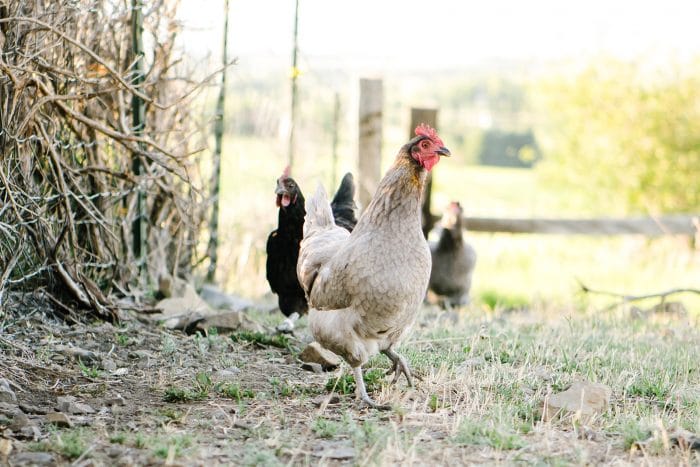
Balanced Chicken Feed
Chicken feed that is sold in stores is professionally formulated to meet the specific nutritional needs of chickens. This feed is designed to provide a balanced and nutritious diet that supports the health and well-being of chickens.
The formulation of chicken feed is based on a number of factors, including the age and breed of the chicken, as well as its intended use (e.g., egg production, meat production). The feed is carefully balanced to provide the right mix of essential nutrients, including protein, carbohydrates, vitamins, and minerals, to meet the specific needs of the chicken.
In order to ensure that the feed is nutritionally balanced, it is formulated based on scientific research and recommendations from poultry nutritionists. The ingredients used in the feed are carefully selected and are sourced from reputable suppliers. The feed is then tested to ensure that it meets the nutritional requirements for chickens.
In addition to providing a balanced diet, store-bought chicken feed is also convenient and easy to use. It is typically sold in bags or pails and can be stored for a period of time without spoiling. This makes it a convenient option for chicken owners who may not have the time or resources to formulate their own feed.
Chicken feed that is sold in stores is professionally balanced to meet the specific nutritional needs of chickens. It is formulated based on scientific research and is tested to ensure that it meets the necessary requirements for optimal chicken health. This kind of feed should be offered at all times, 24/7. This is the best way to ensure healthy chickens and avoid health issues.
It is your obligation as an animal owner to meet the nutritional needs of your backyard chickens. If you expect them to remain healthy and produce food for you, feeding them appropriate food is a requirement. It is morally wrong to do otherwise.

Looking for more in-depth chicken-keeping information? Take my course, Chicks with Confidence!
Chicks with Confidence is a straight to the point, fact based digital course that walks you through exactly what you need to get raising your baby chicks without breaking the bank or causing you to panic everytime they make a weird sounding peep!
Not Meeting a Chicken’s Nutritional Needs
If a chicken’s nutritional needs are not met, it can lead to a variety of health problems. Some of the possible consequences of malnutrition in chickens include:
- Poor egg production: Chickens that do not receive a sufficient and balanced diet may have reduced egg production or produce eggs with thin or brittle shells.
- Poor feather growth: Chickens that do not receive the proper nutrients may have poor feather growth, leading to a scruffy or unkempt appearance.
- Weak immune system: A lack of proper nutrition can weaken a chicken’s immune system, making it more susceptible to illness, disease, and parasites.
- Poor overall health: Chickens that do not receive a balanced diet may be more prone to health problems and may have a shorter lifespan.
It is important to provide chickens with a balanced and nutritious diet in order to support their overall health and well-being. This includes offering a variety of feedstuffs that provide the necessary proteins, carbohydrates, vitamins, and minerals that chickens need to thrive.
Laying Hen Nutrition
Laying hens, which are chickens that are used for egg production, have specific nutritional needs to maintain good health and produce high-quality eggs. In order to meet these needs, it is important to provide a balanced and nutritious diet that includes a variety of different feedstuffs.
One of the most important nutrients for laying hens is protein, which is essential for the production of eggs. Hens require a diet that contains at least 16% protein in order to maintain optimal egg production. This much protein can come from a variety of sources, including soybean meal, fishmeal, and animal by-products.
Laying hens also require a source of energy in their diet, which is typically provided by carbohydrates such as grains. Grains, such as corn and wheat, should make up a significant portion of a laying hen’s diet and should be finely ground in order to be easily digestible.
In addition to protein and carbohydrates, laying hens also need a variety of vitamins and minerals in their diet. These nutrients help maintain the hens’ overall health and support egg production. Some of the most important vitamins and minerals for laying hens include calcium, which is necessary for the development of strong eggshells, and vitamin D, which helps the hens absorb calcium.
In a professionally balanced feed, you can check the label to see what percentage of each of these nutrients the feed has. This is called the guaranteed analysis and is on every feed bag at the store.
Laying hens also need access to clean, fresh water at all times. Water is essential for a variety of bodily functions, including digestion, and it is important to provide enough water to meet the needs of the hens. Water intake can vary depending on the temperature, humidity, and the type of feed being consumed.
In addition to a balanced diet, it is also important to consider the physical environment in which the hens are kept. Laying hens should have access to space to move around and perform natural behaviors, such as dust bathing and foraging. They should also be provided with a clean and comfortable place to rest and lay their eggs.
Overall, the nutritional needs of laying hens are complex and require a balanced and varied diet to meet their specific requirements. Providing a high-quality diet is essential for the health and well-being of the hens and the production of high-quality eggs.

Looking for more in-depth chicken-keeping information? Take my course, Chicks with Confidence!
Chicks with Confidence is a straight to the point, fact based digital course that walks you through exactly what you need to get raising your baby chicks without breaking the bank or causing you to panic everytime they make a weird sounding peep!
If you’re looking for information on what to feed baby chicks, check out this post for all the details you need to feed your baby chickens.
Meat Chicken Nutrition
Meat chickens, also known as broiler chickens, have specific nutritional requirements in order to grow and develop properly. These requirements are influenced by a number of factors, including the age and weight of the chickens, as well as the environment in which they are raised. It is important to provide a nutritionally balanced diet that meets the specific needs of meat chickens in order to optimize their growth and development.
Protein is a critical nutrient for meat chickens and is essential for muscle growth and development. The protein requirement for meat chickens increases as they grow and can range from 18-22% depending on the age of the chicken. Some common sources of protein in meat chicken feed include soybean meal, corn gluten meal, and animal by-products.
In addition to protein, meat chickens also require a source of energy in their diet, which is typically provided by carbohydrates such as grains. Grains, such as corn and wheat, should make up a significant portion of a meat chicken’s diet and should be finely ground in order to be easily digestible.
Vitamins and minerals are also important for the overall health and development of meat chickens. These nutrients help to support the immune system, bone growth, and muscle development. Some of the most important vitamins and minerals for meat chickens include calcium, which is necessary for strong bones, and vitamin E, which helps to support the immune system.
In addition to a balanced diet, it is also important to consider the physical environment in which meat chickens are raised. Meat chickens should have access to plenty of space to move around and perform natural behaviors, such as scratching and pecking. They should also be provided with a clean and comfortable place to rest.
In professionally balanced feeds sold in feed stores, you can check the label to see what percentage of each of these nutrients the feed has. This is called the guaranteed analysis and is on every feed bag at the store.
Overall, the nutritional requirements for meat chickens are complex and require a balanced and varied diet to meet their specific needs. Providing a high-quality diet is essential for the health and well-being of the chickens and the production of high-quality meat.
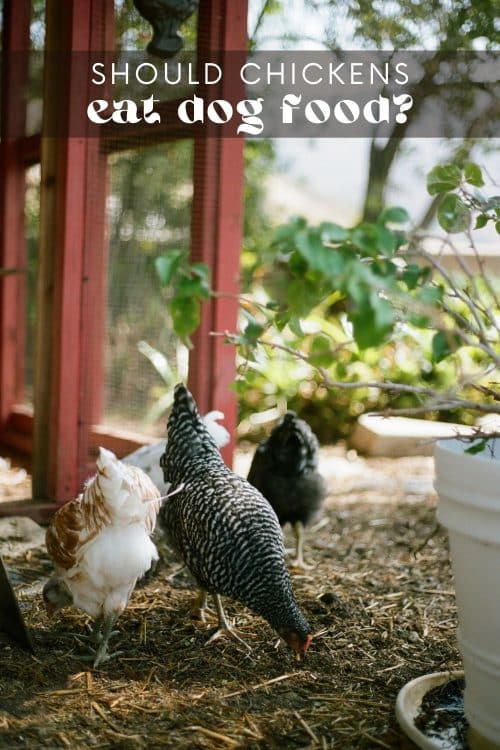
Healthy Treat Ideas for Chickens
There are a variety of healthy chicken treats you can feed in addition to their regular feed. Some good treat options for chickens include:
- Fruits and vegetables: Chickens can enjoy a wide variety of fresh fruits and vegetables as treats. Some good options include lettuce, spinach, sweet potatoes, apples, pumpkins, and watermelon rind.
- Grains: Grains such as oats, barley, and wheat can make tasty treats for chickens. These can be offered whole or ground up.
- Mealworms: Mealworms are a high-protein treat that chickens love. They can be purchased dried or live.
- Sunflower seeds: Chickens enjoy the taste of sunflower seeds and they are a good source of protein and healthy fats.
- Kitchen scraps: Chickens can also enjoy a variety of kitchen scraps or human food as treats, including cooked beans, pasta, and grains.
- Anything that contains dairy, like cottage cheese, should be offered in small quantities to avoid stomach upset.
It is important to remember that treats should be offered in moderation and should not make up the majority of a chicken’s diet. Chickens still require a balanced and nutritious layer feed in order to maintain good health and productivity.
Feeding Chickens Kitchen Scraps
Feeding chickens kitchen scraps can be a great way to provide them with a varied and nutritious diet, as well as reduce food waste. However, it is important to follow a few guidelines in order to ensure that the chickens are getting a balanced and healthy diet.
One of the most important things to consider when feeding chickens kitchen scraps is the type of scraps that you provide. Some kitchen scraps, such as fruits and vegetables, can make up a significant portion of a chicken’s diet. Some examples of good fruits and vegetables to feed chickens include lettuce, spinach, apples, and pumpkins.
It is also important to consider the type of protein content that you provide to your chickens through kitchen scraps. While chickens can benefit from a varied protein source, it is important to avoid feeding them scraps that are high in fat or have been heavily seasoned. This can lead to digestive problems and can affect the taste of the eggs. Some high quality sources of protein for chickens include cooked beans, grains, and pasta.
In addition to fruits and vegetables and protein sources, it is also important to provide chickens with a source of calcium. Calcium is essential for the development of strong eggshells and can be provided through kitchen scraps such as eggshells or crushed oyster shells. It is important to crush these scraps finely in order to make them more easily digestible for the chickens.
While feeding chickens kitchen scraps can be a great way to supplement their diet, it is important to remember that they should not make up the majority of their diet. Chickens still require a balanced and nutritious feed that is formulated specifically for their needs in order to maintain good health and productivity.
Feeding chickens kitchen scraps can be a great way to provide them with a varied and nutritious diet, as well as reduce food waste. However, it is important to follow a few guidelines in order to ensure that the chickens are getting a balanced and healthy diet.

Looking for more in-depth chicken-keeping information? Take my course, Chicks with Confidence!
Chicks with Confidence is a straight to the point, fact based digital course that walks you through exactly what you need to get raising your baby chicks without breaking the bank or causing you to panic everytime they make a weird sounding peep!
Diets for Free-Range Chickens
While free ranging chickens can provide numerous benefits, including access to fresh air, sunshine, and the opportunity to perform natural behaviors, they cannot survive on free ranging alone. In order to maintain good health and productivity, chickens still require a balanced and nutritious diet that meets their specific nutritional needs.
One of the primary reasons that chickens cannot survive on free ranging alone is that they are unable to obtain all of the necessary nutrients from only foraging. Chickens have specific requirements for protein, carbohydrates, vitamins, and minerals in order to maintain good health and productivity. While they may be able to obtain some of these nutrients from foraging, it is unlikely that they will be able to meet all of their nutritional needs through foraging.
In addition to not being able to meet all of their nutritional needs through foraging, free ranging chickens also face a number of other challenges. These can include predation from animals such as hawks and foxes, as well as exposure to diseases and parasites. Chickens that are free ranging are also more likely to be subjected to extreme weather conditions, which can have a negative impact on their health and well-being.
While free ranging can be a great way to supplement a chicken’s diet and provide additional exercise and stimulation, it is important to remember that it cannot replace a nutritionally balanced diet. Chickens should still be provided with a high-quality feed that is formulated specifically for their needs in order to meet their nutritional requirements and support their overall health and well-being.
While free ranging chickens can provide numerous benefits, they cannot survive on free ranging alone. In order to maintain good health and productivity, chickens still require a balanced and nutritious diet that meets their specific nutritional needs. It is important to provide them with a high-quality feed that is formulated specifically for their needs in addition to allowing them to free range.
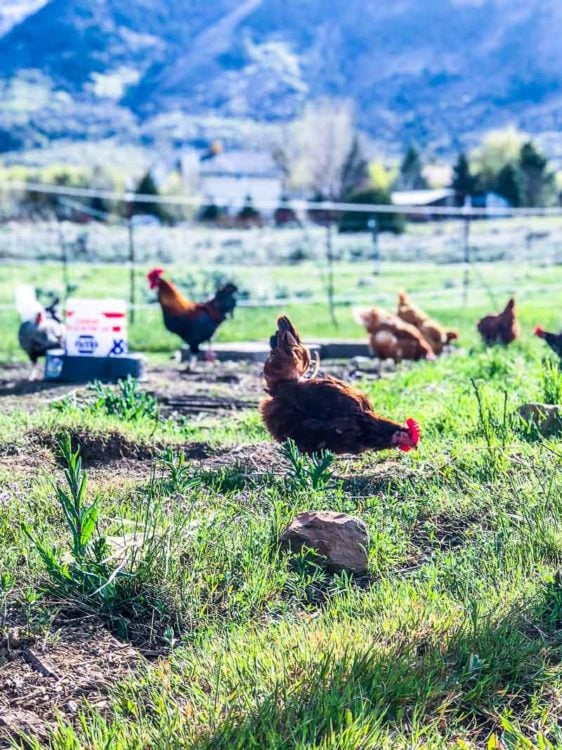
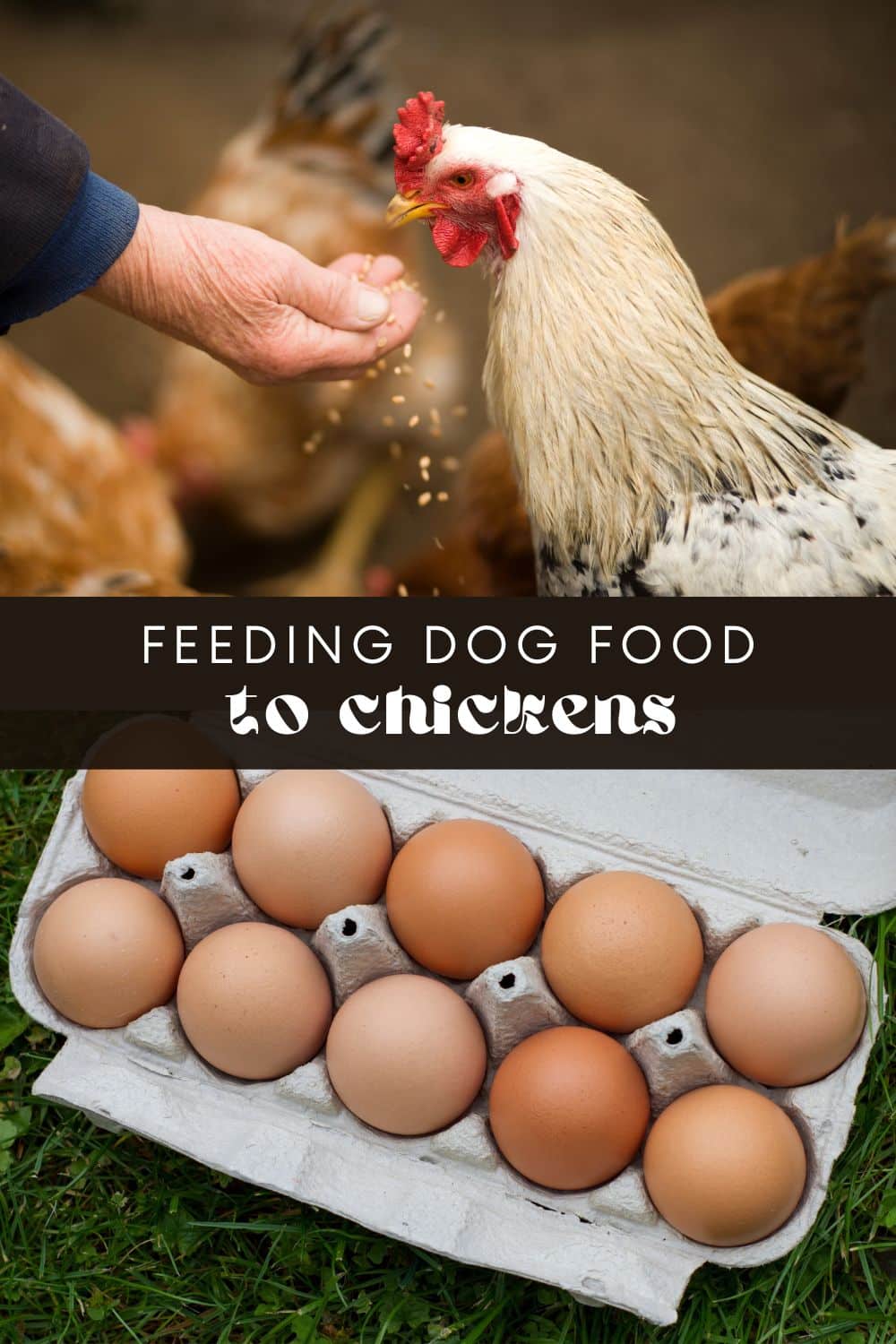
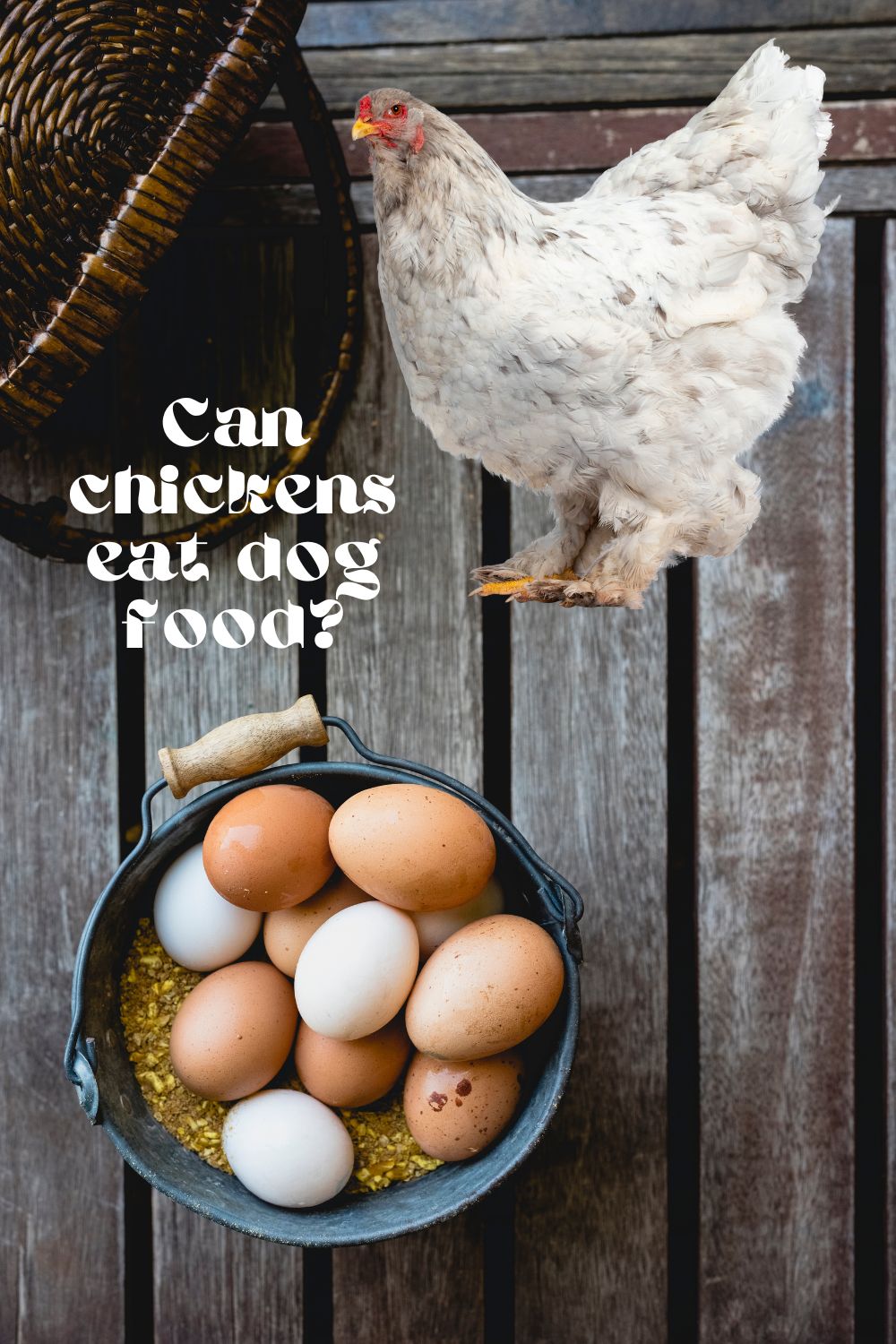
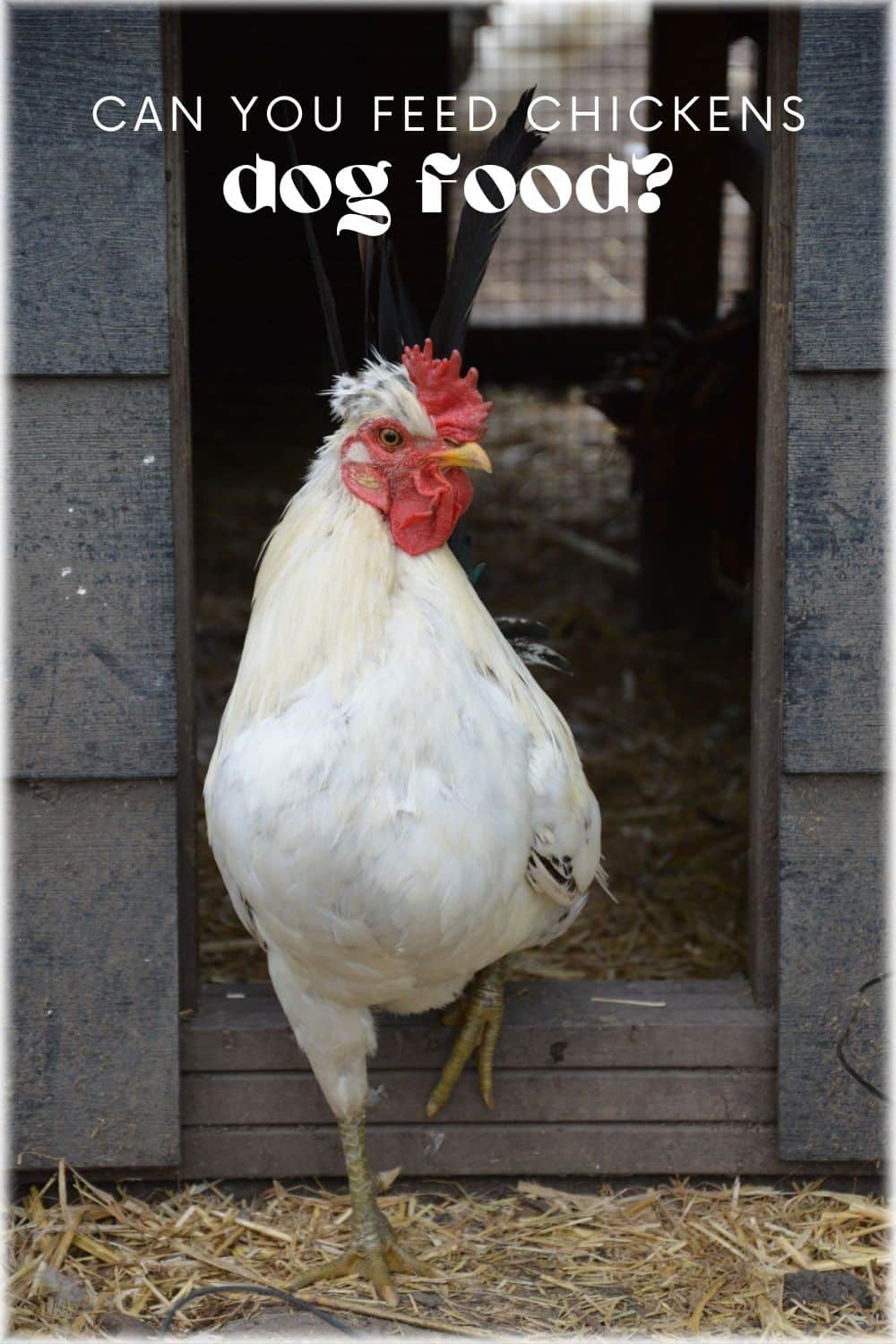
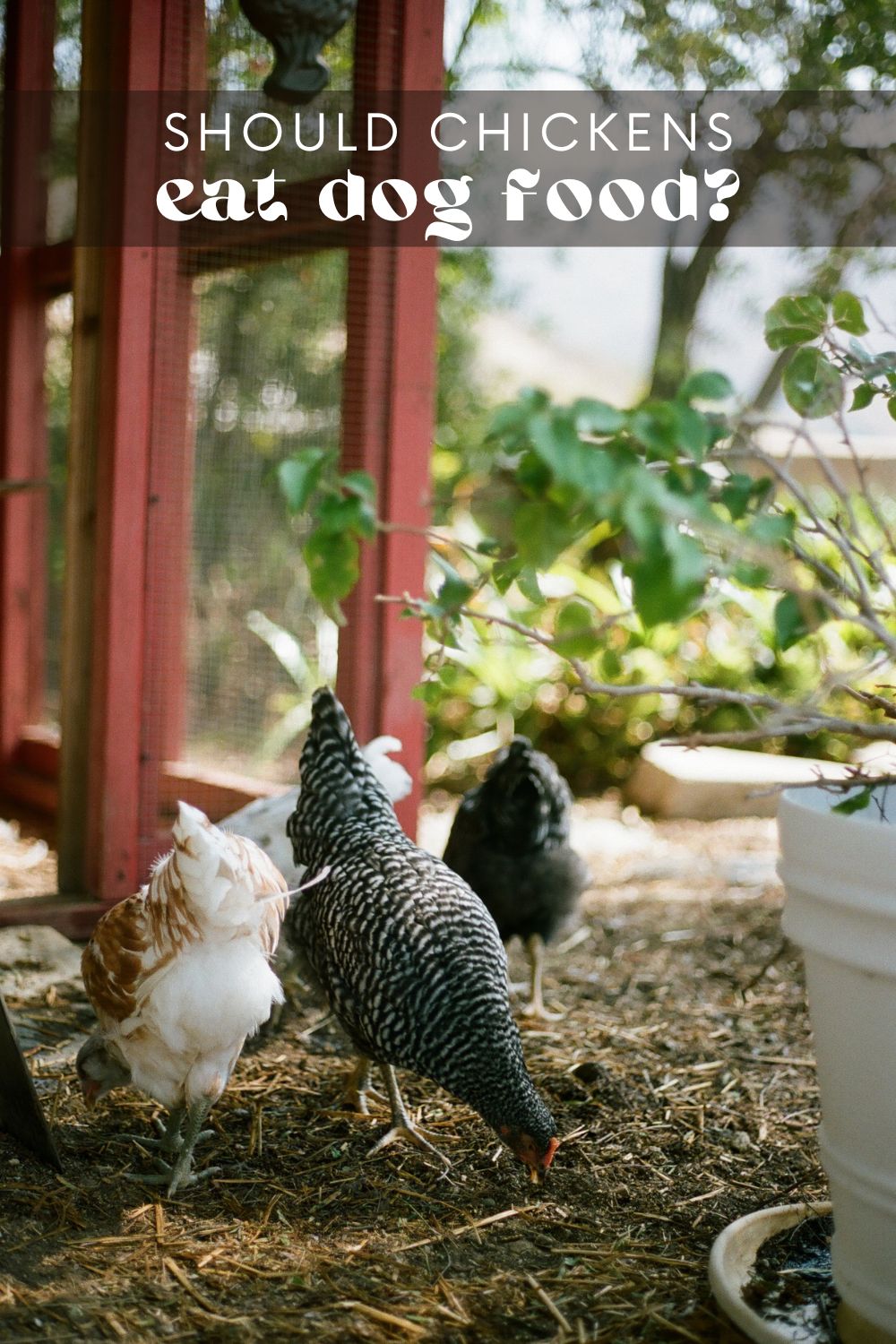





[…] Can Chickens Eat Dog Food? […]